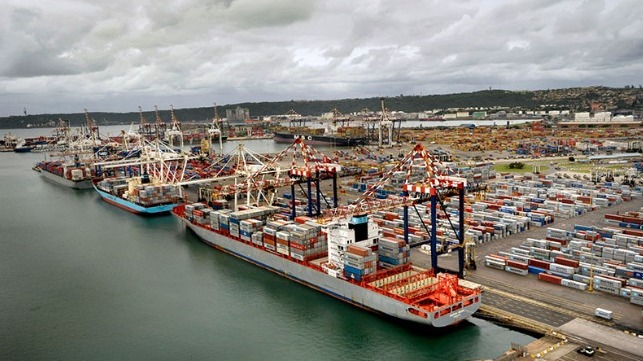
[ad_1]

Posted on Jul 5, 2021 3:14 PM by
Brian Gicheru Kinyua
The shipping industry is heading full steam ahead to reduce carbon emissions. The easy access and cost-effective use of greener shipping fuels will be the defining moment of this change. It is therefore imperative to determine which regions of the world are on the verge of becoming green fuel hotspots as heavy fuel oil is phased out.
Ricardo and the Environmental Defense Fund recently released a report suggesting that South Africa holds a huge opportunity to provide the global shipping industry with carbon-free fuels. South Africa’s vast natural resources, geography and prominence along important shipping routes are among the factors that could catalyze the rise of a low-carbon maritime economy in the country. More than 90 percent of South Africa’s electricity supply comes from coal, and adopting zero-carbon fuels would also support the country’s overall carbon commitments.
“Our study shows that South Africa has abundant renewable energy potential. It suffices to meet the country’s domestic electricity demand as well as the production of zero carbon fuels to supply the commercial vessels refueling in its international ports. The adoption of zero carbon propulsion technologies in South African ports could attract investments of between [$8 and $12 billion] in land infrastructure by 2030. All it takes to unlock this investment is the right incentive policy defined by the International Maritime Organization, ”said Aoife O’Leary, Director of International Climate at the Environmental Defense Fund.
South Africa has been very proactive in charting a path for investment in green fuels. Already, the government is developing a hydrogen strategy and an investor roadmap where green hydrogen is identified as the first of five “Big Frontier” strategic investment opportunities. The other four opportunities include next-generation digital industries and infrastructure; manufacturing and logistics supported by special economic zones; industrial cannabis and advanced agro-industry; and scaling up environmental, social and governance investments.
To further capitalize on the emerging opportunities created by the transition to zero carbon transport fuels, South Africa is considering a co-financing partner in the proposed new port of Boegoebaai in the Northern Cape region. The government hopes to integrate green hydrogen and green ammonia production facilities for export into the new port complex.
A recent study commissioned by Agora Energiewende revealed that South Africa can develop the capacity to produce 3.8 million tonnes of green hydrogen by 2050. Two million tonnes of this hydrogen could be consumed in the country for produce synthetic fuels, green steel and chemicals. The report noted that such production would help South Africa compete in green hydrogen import markets, especially in Europe. where annual imports of green hydrogen are expected to reach over 30 million tonnes by 2050.
The opinions expressed here are those of the author and not necessarily those of The Maritime Executive.
Source link